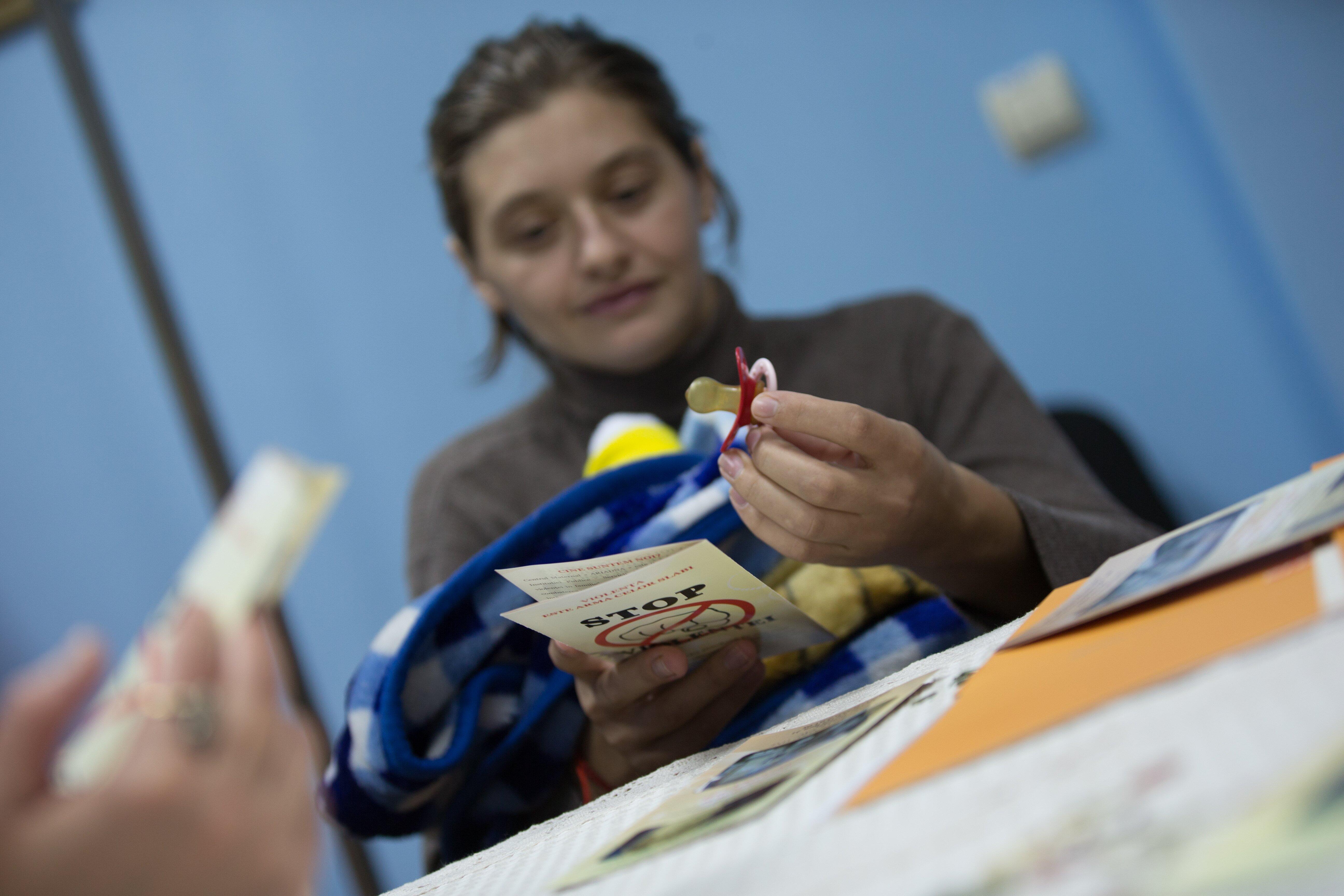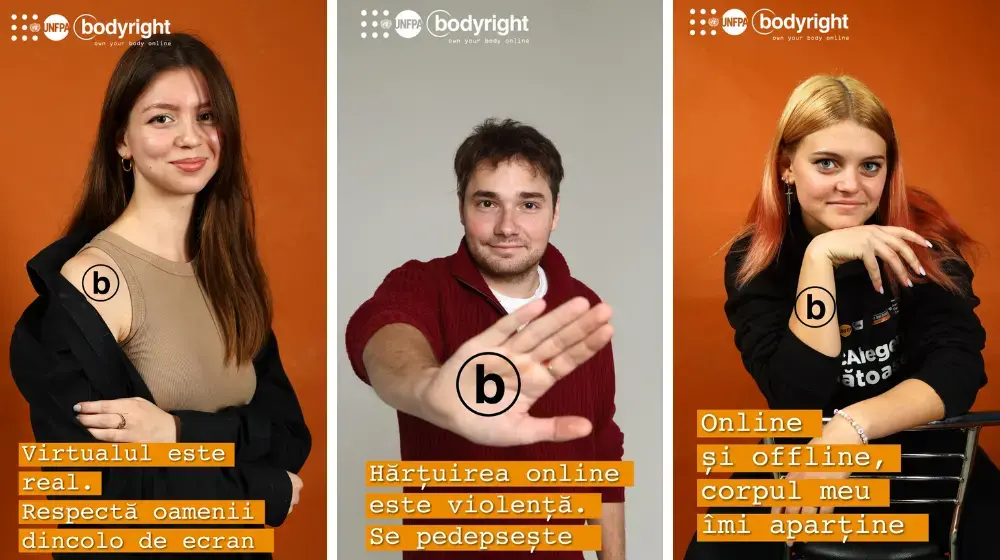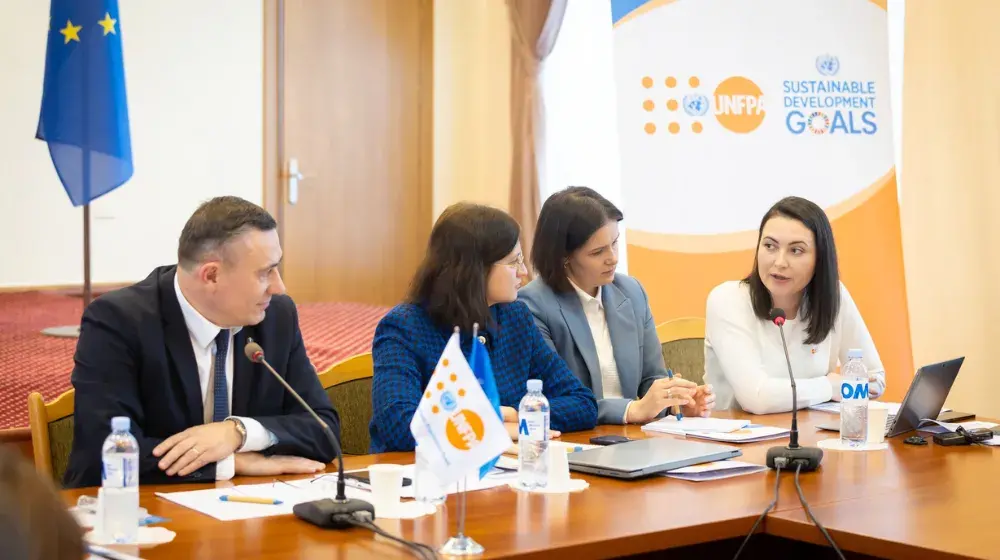It was the first time that Nicolae M., precinct police inspector from Soldanesti District, northern Moldova, knew how to respond when a woman, who had just become the victim of domestic violence, came to him. During the previous eight years of work experience as a policeman, he received many similar claims, which he usually treated superficially and settled mainly from a procedural point of view. When women did not want to file claims against the aggressors or did not want to send the aggressors to court, he just followed their wish and did not bother trying to convince them. "I was only applying a fine to the aggressor who would promise not to beat his wife anymore. I would also talk with the victim who would usual be ashamed of what had happened and would rather go home as soon as possible, away from prying eyes. So, things would be settled for a while. But the situation could happen again", Nicolae tells us regretfully.
"Such situations are widespread in Moldova - explains Valentina Bodrug-Lungu, a national expert in gender problems. - And this is because of the deeply-rooted tradition that "an unbeaten woman is like a house that was not swept" or "a beating is from Paradise." The situation is rather bad, as one in three physically-abused women considers that it was she who provoked the conflict, so the community does not pay much attention to this phenomenon, and the professionals are unmotivated to tackle the issue in a comprehensive manner."
In March 2009, Nicolae M. participated in a training seminar organized within the framework of the Project "Protection and Empowerment of Victims of Human Trafficking and Domestic Violence". Through this experience he came to realize that his approach was wrong and that the policeman, all by himself, cannot save a victim from domestic violence. Only working together with a multidisciplinary team (family doctors, social assistants and psychologists) the policeman was able to understand the complex nature of the phenomenon and the most appropriate intervention to be used in such situations.
Nicolae M. subsequently dealt with a case of a 32-year-old woman with two small children and a violent husband. Maria F. did not dare to come to the police for a long period of time. She was afraid to be left in the street with no source of income. But a day came when she finally decided to take action. She took the children and left the person who had promised love and care until old age. The woman ended up in the Soldanesti police office. She came to see Nicolae M. This time the policeman registered the domestic violence case and called for the social assistant, the doctor, and the psychologist from the locality to come to a meeting to solve the case together.
"Maria is going to be evaluated from a psychological point of view; she will go through counselling and therapy so as to overcome the physical and psychological abuse she has been through. The woman and the children will undergo medical tests so as to identify other possible psycho-somatic diseases, if any. The woman will also benefit from social assistance", the police inspector described all these measures in detail, pointing out that he "was very pleased to work with the multidisciplinary team and to see the real benefits this team may offer to victims of domestic violence."
Larisa T., the psychologist from Soldanesti, another participant in the training, told us that the biggest advantage she perceives now in her work with the persons who have suffered violence resides in the complex approach used to treat the victims: from psychological and moral rehabilitation to finding a place to live and getting a job. "In this way we help the victims to reintegrate into society, and we reassure them and offer them hope for the future. We break the cliche that violence has to be a taboo subject, that is to be absorbed within the family, and that no one should find out about it", thinks the psychologist.
From early 2009, about 200 professionals from the Soldanesti, Vulcanesti, Rezina, Anenii-Noi and Grigoriopol districts attended the training courses organized within the framework of the Joint Project on "Protection and Empowerment of Victims of Human Trafficking and Domestic Violence in Moldova." Family doctors, social assistants, and policemen learned how to prevent and combat domestic violence, how to set up multidisciplinary teams, and how to react in every individual case so as to protect the victim from violence, and to prevent new cases and recidivism. By the end of the year, about 200 other professionals will have taken part in new training courses organized in the field of preventing and combating domestic violence.
Coming back to the case of Maria F. - her situation is now on the working agenda of the multidisciplinary team from Soldanesti. She has been benefiting from psychological counselling and medical assistance for two weeks, being temporarily placed with her children in the local maternal centre. At the same time, the specialists from the centre discuss the situation with Maria's parents, who seem to be ready to offer her a home and to start her life anew. The woman cannot believe that she finally got away from her violent husband and may live in peace with her children. "I really do not know what I would do by myself. Who knows? Maybe I would have had to leave my children for a while in the boarding school and go abroad so as to earn money and maintain them. Now, with the specialists' help, I hope to find a job and to take care of my children at home. I wish from my heart for the parents to understand me and to welcome me back in the family", the woman told us with hope in her eyes and voice.





